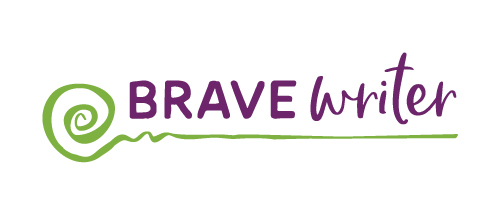Welcome to "Tea with Julie," a weekly missive by me, Julie Bogart. My wish is to give you food for thought over a cup of tea to enhance your life as an educator, parent, and awesome adult. Glad you're here. Pinkies up!
P.S. Was this email forwarded to you? Add yourself to the list and get your own!
Cincinnati, October 23, 2021
Hi Friend,
I want to share with you a story from my own childhood, because I think it’s illustrative of the failure of the system that requires children to write without help.
My mother is a freelance author, she has written 75 books, and she has taught writing to professionals.
When I came up through the ranks as a child, my mother made sure I had opportunities to explore writing. She provided me with all kinds of tools—pretty pens, little journals. For my birthday one year, she gave me an All About Me book that includes my very first original story. She took me to the library every week. We read together. She took me to plays and movies. She encouraged me to make handmade cards and to play word games and to complete crossword puzzles.
She created a rich language life for me.
As I got into school, I was assigned writing projects. I remember distinctly, in 4th grade, being told that I needed to produce a report with no help. I had this massive resource in my mother, but I took what the teacher said seriously and I told my mother, “You can’t help me with my report.”
I wrote about Queen Elizabeth. I decided to make the report beautiful for my teacher, so I wrote the report on a blank sheet of white paper, no lines. I wrote it in very light pencil first, then I corrected all my mistakes, and traced over it in pen. I used our World Book Encyclopedias for my research. I put it in a red folder with brads and decorated the cover. I finished it without any help from my mother.
I can’t tell you how proud I was of this paper. I turned in my report with all the other 4th graders.
I got a "C" on my independently produced report. I was told that I had not followed the instructions. I was told that my handwriting sloped, that I needed lined paper, and that I shouldn't have used a folder to house the report. My teacher didn't see my hard work, my independence or my heart. She measured me by criteria I didn't even know to follow. In essence, that grade told me that I wasn't a good writer.
Here’s what you have at home that my 4th grade teacher didn’t have:
A front row seat to your children’s development. You see what your kids are writing and creating. You know how much help you provide your child. You know how much heart your child commits to their efforts. You can affirm all of that and support growth.
When you participate in your child's writing life, you support their development (you don't stunt it).
Grades are irrelevant!
I call this stage of growth the Partnership Writing stage of development.
Ask yourself if your child:
- can write a sentence or a few words at a time but tires easily.
- needs help with spelling, punctuation, and getting rich vocabulary to the page.
- shows interest in using a pencil or keyboard but is not ready to “go it alone.”
- needs modeling for how to put thoughts into writing.
If any of these are true for your child, your young writer deserves your kind assistance and help.
Partnership Writing is the most overlooked stage of writing development. It is a writing-revising-editing partnership between a young writer and a writing coach (YOU!). It’s the stage where parent and child write together, with the parent providing the much-needed support to get those precious, quirky insights to the page.
No guilt! Enter into this partnership with love and caring and watch your writers thrive!
To learn more, listen to my Partnership Writing podcast episode.
Warmly,

P.S. Catch up on all the “Tea with Julie” emails here!
Julie Bogart
© 2021 Brave Writer LLC™
help@bravewriter.com

.